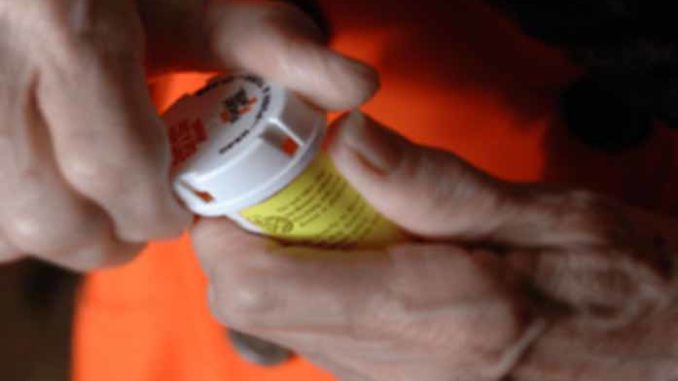
Bill Hall, a retired investigator for the Arizona State Liquor Department, is fighting for the life of his beloved wife, Gabriella.
Gabriella, age 64, tested positive for COVID-19 and has been in intensive care at Desert Banner Health with pneumonia for a month.
Sedated and unconscious, Gabriella is not getting enough oxygen in her system. As a result, the doctors have put her on a ventilator, but are offering no other options for her treatment because she “doesn’t meet the criteria.”
After doing some research, Bill discovered a drug called RLF-100 that has been used for treating COVID patients on ventilators and changing their condition for the better in 3-4 days. When Bill approached Banner Health’s Dr. Dean R. Prater about the drug, he says Dr. Prater told him that he had never heard of it. Later, according to Bill, Dr. Prater claimed it wasn’t available in Arizona.
Undeterred and desperate to save his wife, Bill contacted the manufacturer who told him it’s available everywhere and it is only a matter of the doctor signing an application for the patient.
With hope bolstered, Bill turned to Dr. Prater again. This time, according to Bill, Dr. Prater said that Gabriella, who has no underlying conditions, doesn’t qualify to receive the drug because patients must actively have COVID and be on a ventilator no more than a week. She’s been on it for 9 days, but now tests negative for COVID.
Bill asked the doctor what they had to lose. He had to ask; Gabriella is everything to him, but he knows he can’t make them do anything if they refuse to treat the love of his life.
Bill said he’s getting by day by day.
Running out of options leads to patient advocate
Another option mentioned by the doctors was putting Gabriella on a heart/lung bypass machine, but Desert Banner doesn’t have one and it’s too great a risk to transfer her to another hospital. The machine would definitely help, the doctor said, but he can’t get it to her.
Gabriella’s oxygen is okay, but still under where it needs to be because she’s not exhaling enough CO2.
With options running out, Bill reached out to Congressman Andy Biggs, who put him in contact with Karen Mercereau.
Karen is the founder and owner of RN Patient Advocates (RNPA) whose mission is to “empower people in their health care through advocacy, education and guidance through the healthcare system” and education is their central tenet. Karen’s team helps patients find other options when they’ve reached a dead-end.
Moving quickly, Karen reached out to Nurse Practitioner Patricia Pinckard at Desert Banner who told her that Gabriella is not doing well on the ventilator.
The company supplying RLF-100 offered a “One Time Compassionate Use” for an end of life scenario as long as forms were filled out from the FDA, NIH and Dr. Prater. Karen got the forms for Pinckard and approval from the Director of the Pharmacy at Banner, Ambrosia Johnson, who said, “you get me that drug and we’re on board.”
However, Dr. Prater insists that Gabriella doesn’t qualify and, and according to Karen, he wants to know what the side effects of the drug are. “Who the hell cares,” said Karen, “This woman is dying and if there’s an opportunity for this to give her a chance, fill out the forms.”
Karen tried talking to the doctor, but he hasn’t returned her phone call.
As an advocate for patients, Karen believes that it is her responsibility to make caregivers aware of all their medical options and it doesn’t work well when they tell someone they have to do something because that’s what they hear in the doctor’s office.
Twelve million Americans are misdiagnosed a year because of misinformation and Karen believes it’s possible to turn that number around. She points to the fact that currently medical records are scattered and full of errors because “everyone’s in a big fat hurry.” If they wrote something incorrectly in a patient’s chart, it will live there forever. One of the tools RNPA is working on to combat this problem is called Medikey. Medikey’s software is specifically designed to remove errors.
“We prevent medical errors all the time,” said Karen. She doesn’t like the typical process that insurance companies use because they often default to prescribing pills or surgery. Karen said you have to follow the science and they do not. According to her, the U.S. is behind the ball when it comes to medicine because “every other advanced nation uses Systems Biology, which demonstrates that the human body is connected from the gene level up.” She thinks that one of the problems in the U.S. is that in medical school students learn all the different organ systems, but not how they’re connected.
As for Gabriella Hall, she may well end up being one of the 12 million mistreated Americans, but not if her husband and her patient advocate have anything to do with it.
Attempts to speak to Dr. Pater were unsuccessful.
